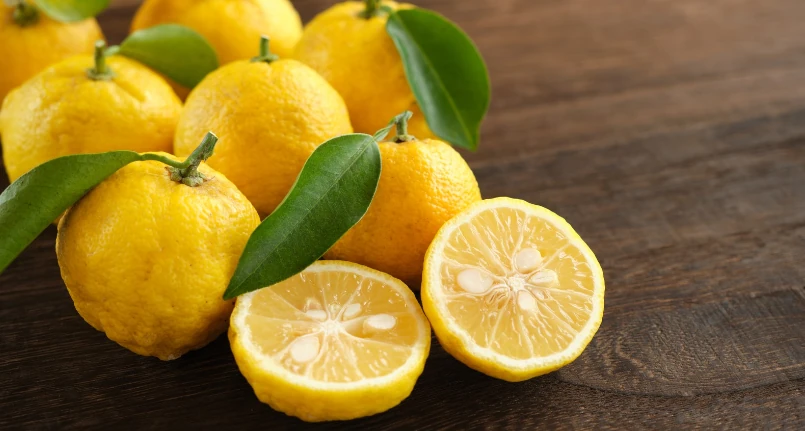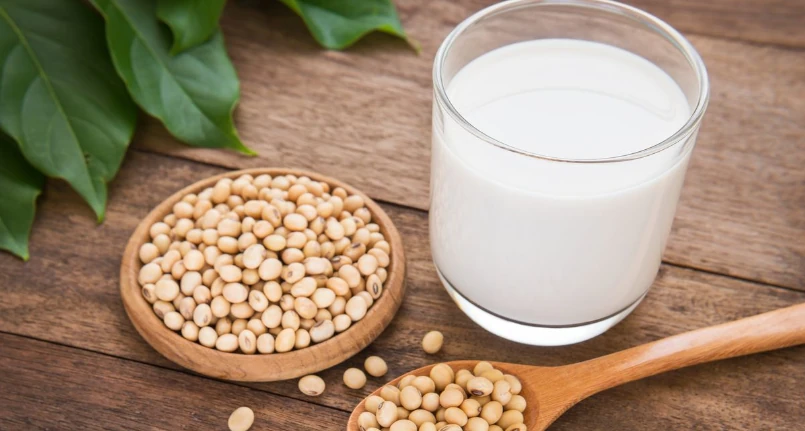Introduction
Although yuzu is not yet very easy to find on the market, it is considered one of the new super foods arriving from Japan, its country of origin where it is widespread and used, especially in the kitchen. The beneficial properties of this citrus fruit very similar to a mandarin , but with the colors that unite it with lime , and the flavor halfway between the latter and grapefruit , are many. It is a powerful antioxidant, a fruit rich in vitamin C and polyphenols , capable of preventing cellular aging , preventing flu and colds. In the East, its essential oils are also widely used for aromatherapy -relaxing and soothing properties- but also in cosmetics , in the formulation of creams and body masks.
Yuzu: what is it?
Yuzu is a particularly aromatic citrus fruit native to East Asia. It is a cross between the wild Chinese mandarin and the Pepeda Ichang lemon variety. In Japan where it is now grown on a large scale, especially on the island of Shikoku, the most pristine island of the Japanese archipelago from a naturalistic point of view. The plant is very robust, it prefers proximity to watercourses, and can even bear decidedly rigid temperatures (which differentiates it from other citrus fruits ). Its fruits, which reach full winter ripeness , from October to late December, have an irregular yellow-green rind . They turn outdifficult to squeeze because the fruit contains little juice and large seeds. Its scent is intense, the taste sweet , delicate and refined, a mix of lime, grapefruit and mandarin. Its aromatic notes are a little closer to the freshness of grapefruit .
Cooking uses of yuzu
The yuzu, in home cooking, has not yet made its entrance. It is not easy to find it, even in the stores of oriental and Japanese products. In the kitchens of great chefs, however, it is present in the preparation of fusion-inspired dishes. The most classic preparation, which includes yuzu among the ingredients, is the famous Ponzu sauce, obtained by mixing: rice vinegar , kombu seaweed , sweet sake, fish stock and yuzu juice. And to think that in Japan it is treated like an orange or a lemon, and is commonly used as an ingredient in snacks and packaged snacks .
Yuzu is also excellent for preparing tea, wine, liqueurs and cocktails, jams and marmalades . In savory preparations , yuzu can be used to flavor fish or over seafood , sushi , sashimi , but also mayonnaise , butter and soups.
Yuzu: beneficial properties
Yuzu is a concentrate of beneficial properties. It is rich in vitamin C and polyphenols, has a good concentration of minerals including calcium , iron , phosphorus , magnesium , manganese , potassium , selenium , copper , zinc . It is useful for:
- Support for the immune system
- Prevent colds and flu,
- Anti-inflammatory action ,
- Helps preserve vision
- Protect the skin from free radicals
- Digestive properties
- Relaxing properties in aromatherapy
Yuzu is considered a natural antimicrobial : p-methoxycinnamic acid, a constituent present in yuzu seeds, is particularly effective in counteracting bacteria from Escherichia coli , Salmonella , and Staphylococcus aureus , which cause food poisoning. Not only that, this fruit is able to improve blood circulation and prevents blood clots (it has inhibitory effects on platelet aggregation ). Some research on the properties of the fruit has shown that hesperidin and naringenin, the two flavonoid antioxidants present in generous quantities in yuzu (but also in grapefruit, for example) are responsible for the cardiovascular benefits.
In aromatherapy , yuzu is widely used. Its volatile essential oils – including the well-known limonene – help reduce stress and promote relaxation. Simply put two to three drops of yuzu essential oil in a diffuser and inhale the aroma. This will have beneficial effects in relieving tension and stress, and aiding sleep .
Yuzu: Nutritional Values
Nutritional values per 100 grams of Yuzu:
- Calories : 53
- Carbs: 13.3 grams
- Protein : 0.8 grams
- Fat: 0.3 grams
- Fiber : 1.8 grams
- Vitamin C: 59% of the Daily Value (DV)
- Vitamin A : 31% of the DV
- Thiamine : 5% of the DV
- Vitamin B6 : 5% of the DV
- Vitamin B5 : 4% of the DV
- Copper: 5% of DV
Cosmetic uses of yuzu
Yuzu, as already highlighted, is a fruit particularly rich in vitamin C, and therefore it is effective in counteracting skin aging . Vitamin C starts the process of collagen production , which gives the skin a firm and smooth appearance. In the Eastern tradition, the aromatic and healing properties of Yuzu have also been exploited in the cosmetic and aromatherapy fields. In particular, for the practice of relaxing massages , yuzu oil is used combined with a carrier oil such as almond oil , or added to the water in the tub, for a relaxing and regenerating bath.




